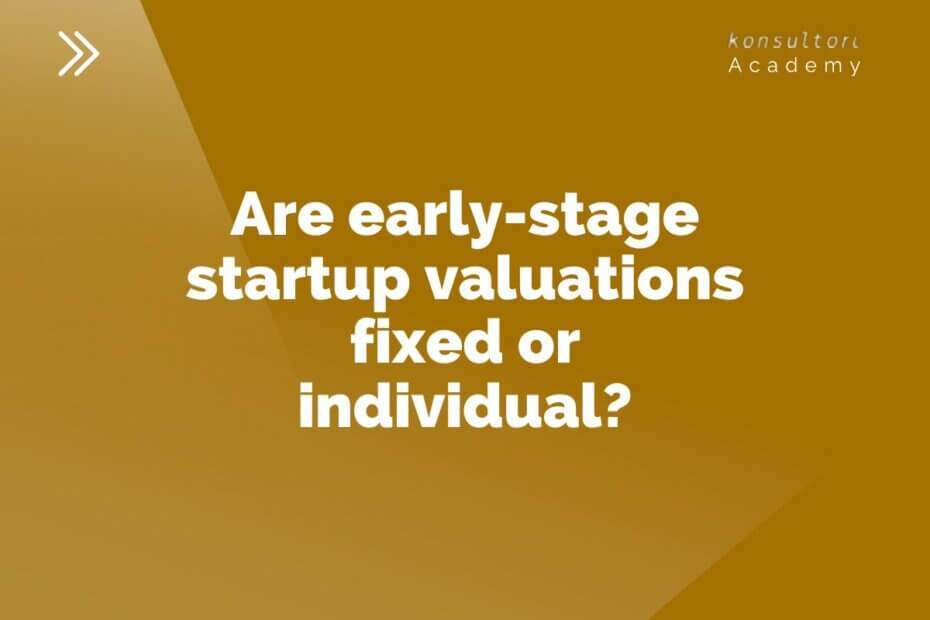How investors like Frank Thelen see that
I spent some days in Latvia in January 2019 training B2B startups in an accelerator about negotiation tactics. There were some questions coming up more often during one-on-one mentoring sessions with the 18 teams. As the batch is at the end of its acceleration process, they are starting their investor funding processes to get into their seed rounds. One of the crucial questions arising now is: What is our valuation? Let’s investigate this topic right here: Do early-stage startup valuations differ case by case or are they somehow fixed? What are the drivers and how to go about it?
Early-stage startup valuations when entering an accelerator are often fixed
When startups enter an accelerator, they are typically pre-revenue, have a working prototype, and a more or less stable founder team which might still undergo some changes. While their business model is still not fully fixed, they are on their quest to finalize their Minimum Viable Product and start their first sales. At the end of the program, they should a) get to their first level of monthly recurring revenue and b) run pilot projects to prove that there is a market need.
At the time when they enter the accelerator, it is quite feasible to have a fixed valuation for startups at that stage, for example, 1.0 m EUR. The program value and money invested by the accelerator get the accelerator a certain share in the startup. In most cases, this is done via a convertible note.
However, at the end of the accelerator program, the startups should have made some progress and some risks should have been lowered. In addition, some things might be clearer and this is why there can’t be a general 1.5 m EUR valuation for any startup dropping out of the accelerator program with first minimum sales. Let’s have a closer look at this.
How investors approach early-stage startup valuations
Frank Thelen is a serial entrepreneur and a tech investor part of “Die Höhle der Löwen”, the German-based startup show that can be compared to Shark Tank. He gave some insights on how to approach early-stage startup valuations in an interview. He basically says, yes valuations differ even at an early stage. Typical low-tech startups (e.g. e-commerce, food sector) get lower valuations than deeper-tech (e.g. Artificial Intelligence). But there is no general rule of thumb. He goes about it in basically 3 steps:
- He compares startups to existing other startups and their valuations along the phases as a first input.
- In addition, he looks at the future valuation of the startups to understand the valuation potential for today. He looks at the market potential of the technology and the target market, as well as the competitive situation to make an assumption about potential revenue in the future.
- He looks at the execution potential of the team especially in the early stage this drives the probability by which the future startup valuation might be achievable.
All three steps drive the valuation of an early-stage startup. There is no fixed valuation for a certain stage of startup, as you can see.
How you can go about identifying the valuation of your early-stage startup
At Konsultori Academy we approach early-stage valuation for startups in a similar manner. We apply the Risk-Factor Summation method to compare your startup with other startups where you do have benchmarks of valuations. Then we combine this by using the Venture Capital Method which approaches valuation as described above by Frank Thelen. It is the method typically used by investors and helps you to understand how they go about it and derive a value that you can defend.
KONSULTORI ACADEMY
Be prepared to approach investors professionally
